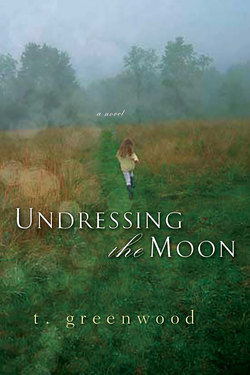Читать книгу Undressing The Moon - T. Greenwood - Страница 11
На сайте Литреса книга снята с продажи.
ОглавлениеWhen you know you are dying, things begin to make sense. In the surprising bright light moment of one more day (stolen or granted, you don’t know which), there is suddenly coherence where chaos used to reside, clarity where there once was confusion. When you lift your arms, amazed that they still work, and see your familiar face reflected—remarkably—in your bathroom mirror, coincidence promptly becomes destiny. And when you open your mouth and your own voice comes out, still here, every chance meeting and every decision you’ve ever made now seem serendipitous. Because everything you’ve ever done or said has led you to this moment. Right here.
That is why I am not surprised that on the very day I decide to stop my chemotherapy, a letter arrives from my mother. It is fitting. Serendipity.
My best friend, Becca, who has been sleeping on my couch lately, looks forward to the mail’s arrival. This isn’t even her house, but when she hears the mail truck pull up every afternoon, she rushes first to the window and then down my steps to meet the mailman. She knows him by his first name, and today I watch them talking on the sidewalk. She takes the small bundle of mail directly from him before he has a chance to stuff it into my mailbox, and then I hear her skipping up the steps two at a time.
“Phone bill, gas bill, Spiegel flyer, and another letter from your mum.” She lays each piece of mail on my kitchen table like a Tarot card, resting the letter from my mother across the phone bill. With her long red hair wrapped up in a precarious knot, she could be a carnival fortune-teller.
“Will you read this one?” she asks.
I wrap my robe and my arms around my waist and shake my head.
This is the twelfth letter I have received from my mother in the last three years, since I found out I was sick: one for each season. I keep them in the back of my closet, in a shoe box that used to hold a pair of shoes I don’t even own anymore. All the envelopes are the same size, though her handwriting varies depending on the season. In springtime, it is thin like bare branches. In winter, the ink is heavy and thick, my name and address a blanket of words. In summertime, she uses colored ink, each return address the color of somewhere else’s summer. Impermanent. Wandering. It is autumn now, and today her words are only veins running through the middle of a fallen leaf. Sometimes the envelopes are as thin as a single sheet of paper; other times they are thick with whatever is inside.
“I wish you’d at least open it,” Becca says, sitting down at the table where she has put a pile of her students’ papers. “It couldn’t hurt to open it.”
I look at Becca as she thumbs through the stack of essays, absently licking her thumb when the pages stick.
“Not today,” I say.
But I keep thinking about the letter that night after Becca goes back to school for parent-teacher conferences. I even leave it lying on the table the way she arranged it with her gypsy hands, thinking now that it likely would reveal more about my past than my future. And later, after the streetlights come on outside and after I have fixed Bog’s dinner, I sit with my feet curled under me on the couch and hold the letter to the light, wondering what would happen if I didn’t put this one away, thinking about how my life might change.
I haven’t seen my mother since I was fourteen years old. And after she left my world fell apart. Everything that happened from the moment I knew she was gone until this moment, until now, has made me who I am. And who I am now is a thirty-year-old girl, body ravaged by a woman’s disease. But somehow everything about this is logical. It makes sense. Dying can be a comforting thing to someone accustomed to chaos.
Finally, I carefully tear the end of the envelope open and spill its contents onto my lap.
I should have known there wouldn’t be a letter inside. No words, only slivers—that was always her way. With tentative fingers, I reach down and carefully pick up the scarlet piece of glass.
